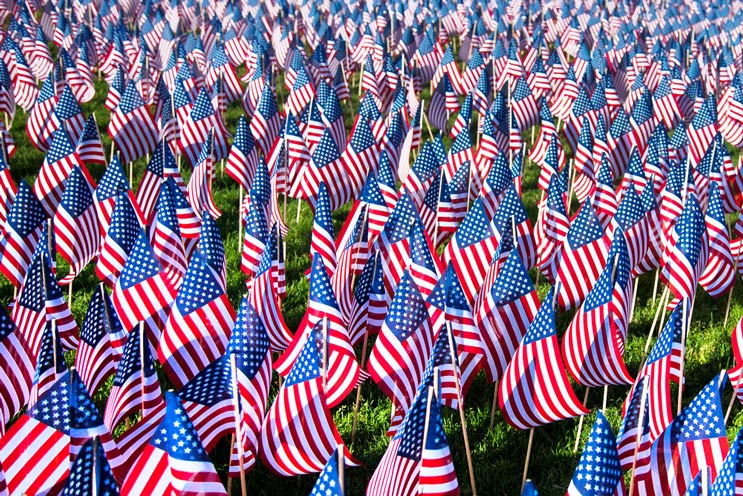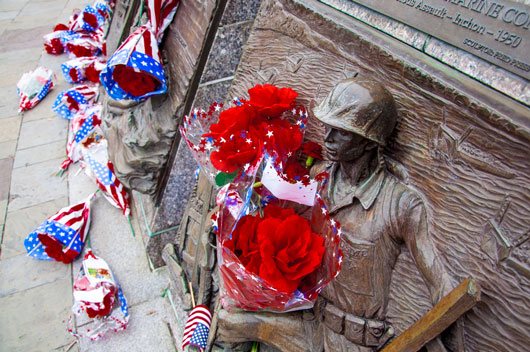
On May 25 we celebrate Memorial Day and kick off the unofficial start of summer with a three-day weekend. With all of the road trips, barbecues and the exhilaration of finally heading to the beach after a long, cold winter, it’s easy to overlook the origin of this holiday and what it stands for. Also, since 9/11 we have been fortunate that the many conflicts our troops have participated in took place outside our shores, which can make the losses suffered, seem distant to those who don’t have loved ones oversees. This is a time to remember all of the brave men and women who have given their lives for our country. We should all consider the words of economist Robert Reich: “True patriotism isn’t cheap. It’s about taking on a fair share of the burden of keeping America going.”
So make the most of your long weekend, celebrate summer and the good things in life but take a moment to reflect on the fallen soldiers who helped make it possible. Even better, let’s delve a little deeper into the origins of Memorial Day.
There’s much debate over where and exactly when the first observance took place—the consensus is it was 1865 or 1866. Back then it specifically honored Civil War soldiers so naturally cities in both the North and the South claim credit for being the first. Some historians believe the special day was born in 1865 at the Planter’s Race Course in Charleston, SC when a group of men dug up a mass grave for Union Soldiers and gave each man his own grave. Following this, troops marched around the race course carrying roses.
Read Related: Memorable Memorial Day Getaways: Tips to Help You Start Planning NOW

In 1868 General John A. Logan declared May 30, Decoration Day. This was a day devoted to bringing flowers and other decorations to soldiers’ graves and General James Garfield gave a speech at Arlington Cemetery. A century later, president Lyndon Johnson made it official on May 5, 1966, proclaiming that Memorial Day originated in Waterloo, NY. And in 1915, the tradition of wearing red poppies on Memorial Day was inspired by poet John McRae’s In Flanders Fields.
The National Holiday Act of 1971, declared this day a national holiday honoring soldiers in all American wars and set the date as the third Monday in May. In December of 2000, The National Moment of Remembrance Act was passed by Congress. This law designated 3pm as time when all Americans are encouraged to pause and take a few minutes to remember the soldiers who have given their lives so that we can enjoy the freedom they fought to preserve.











